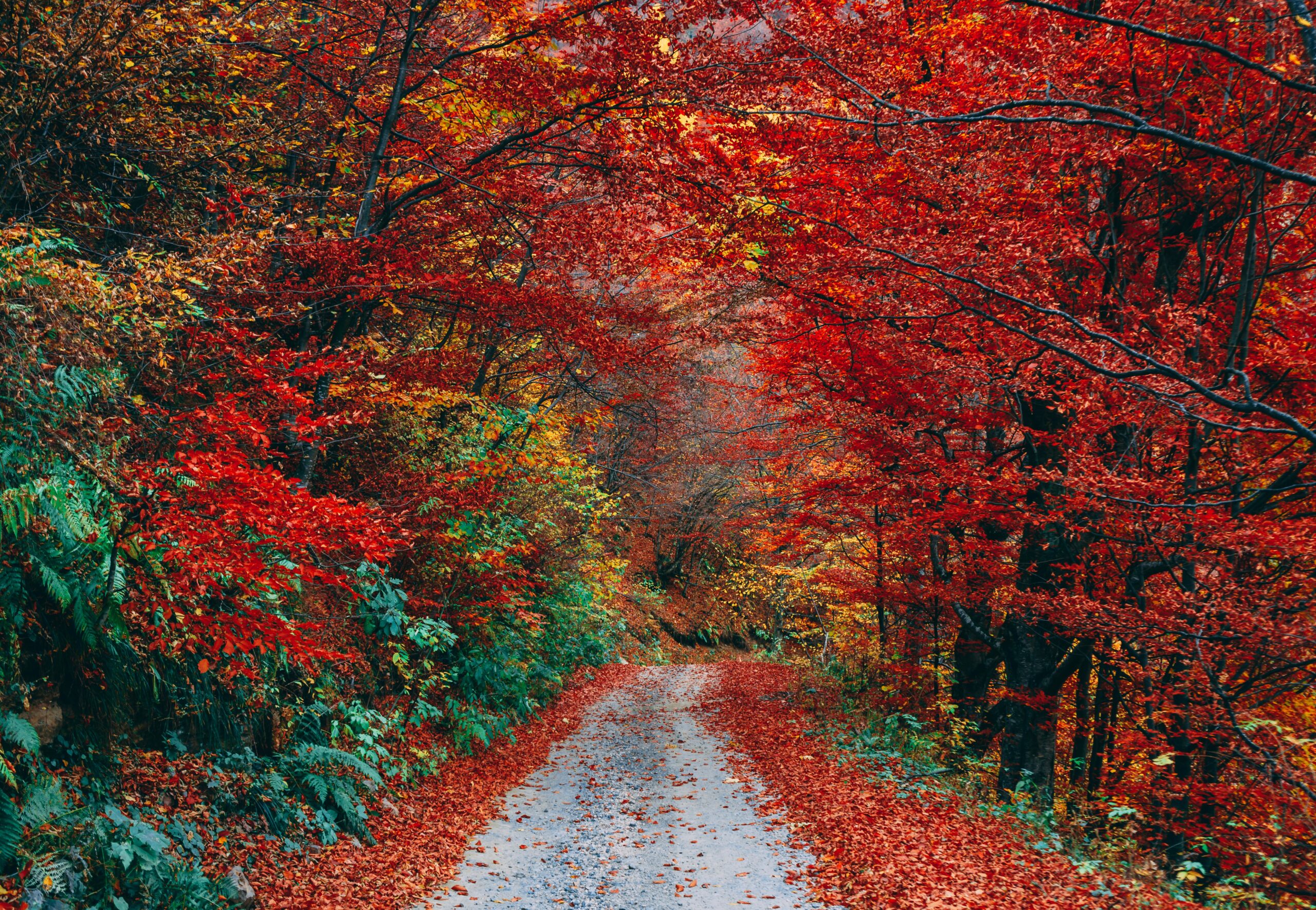Last September, my wife, Emily, and I moved into a new home in which we inherited the gift of threetowering maples in our backyard. Still unpacking, we noticed the signs of autumn already coming to the backyard within a the first few weeks in our new home. A cold front and a few rainy days and all the sudden emerald greens have become blazing reds. The change always seems to come so quickly. Here in East Tennessee superlative descriptions roll easily off the tongue in September and October when we gaze at the wonder of creation all around us. Autumn is “marvelous,” “breath-taking,” and–of course–”glorious.” With spring its only counterpart–when life emerges from winter’s cold and frozen slumber–autumn inspires us with radiant colors and we cannot help but speak our wonder. Why are we less astounded with those same trees in summer and winter? If you speak with most people around here, their favorite seasons are spring and autumn. I think I know why. Change. But not just change because we are bored looking at the same trees in barren winters and monochromatic emerald summers. The kind of change we see in spring and autumn is a kind of transfiguration.
Human beings born with the image of God, separated from the fullness and perfection of that image, are stirred within their hearts when they see an image of transfiguration. We are not only taken aback by the emergence of color all around, we are stirred by forms that change and advance from one degree of glory to another, for that is the Christian’s destiny in Christ. No wonder we speak our awe. Perhaps we’re praying for ourselves and we don’t even know it when we praise God in the glory of autumn. Our bodies were meant to radiate the form that God has given us with His life-giving Spirit. C.S. Lewis agrees:
“It is a serious thing to live in a society of possible gods and goddesses, to remember that the dullest and most uninteresting person you talk to may one day be a creature which, if you saw it now, you would be strongly tempted to worship…All day long we are, in some degree, helping each other to one or other of these destinations…There are no ‘ordinary’ people. You have never talked to a mere mortal.” (The Weight of Glory)
When Paul describes creation’s longing for transfiguration in Romans 8, he says “the creation itself will be set free from its bondage to decay and obtain the freedom of the glory of the children of God.” The glory of autumn seems a microcosm of the grand narrative of creation Paul describes in this chapter. The process by which autumn leaves receive their marvelous colors is actually a process of death and decay. Leaves will soon give up their life, lose all color and shape, and decay into the soil. But before that ending, we witness a marvelous transfiguration of color even as the process of death is being initiated. The same is true in Jesus’ story. Jesus is transfigured before his disciples’ eyes in Mark’s Gospel in the exact middle of that Gospel (Mark 9). As you read Mark’s Gospel after this event, it’s clear that when Jesus walks down the mountain, the events of his death are already set in motion. But the Lord does not give up his life until we have glimpsed the glory of his transfigured body. It further magnifies Jesus’ decision to lay down his life. We glimpse his transfigured glory before the cross, only to witness the sight of his disfigured body on the cross. How great is that self-denying love.
I’m fascinated to know that biologists call the frozen, winter soil a “living tomb.” They call the frozen soil a tomb because after autumn, the ground becomes impenetrable. Yet it is living because of the teeming life produced from the fallen leaves, once transfigured before their death, now sealed deep in the earth. In their decomposition, they have already released nutrients into the soil that nourish trees rooted in the earth. So now one sees how life emerges in the springtime–from that which was dead, life is released. Should any Christian be surprised that the glorious seasons of spring and autumn depend on physical transfigurations?
Now this autumn we glimpse another temporary transfiguration. When our lips are moved to praise, somewhere, somehow we are crying out for the transfiguration of our own bodies. Until that moment of final transfiguration comes, we can give thanks He has given a glimpse of glory in this magnificent world, a promise guaranteed by the life-giving Spirit that will be ours in the world to come.
